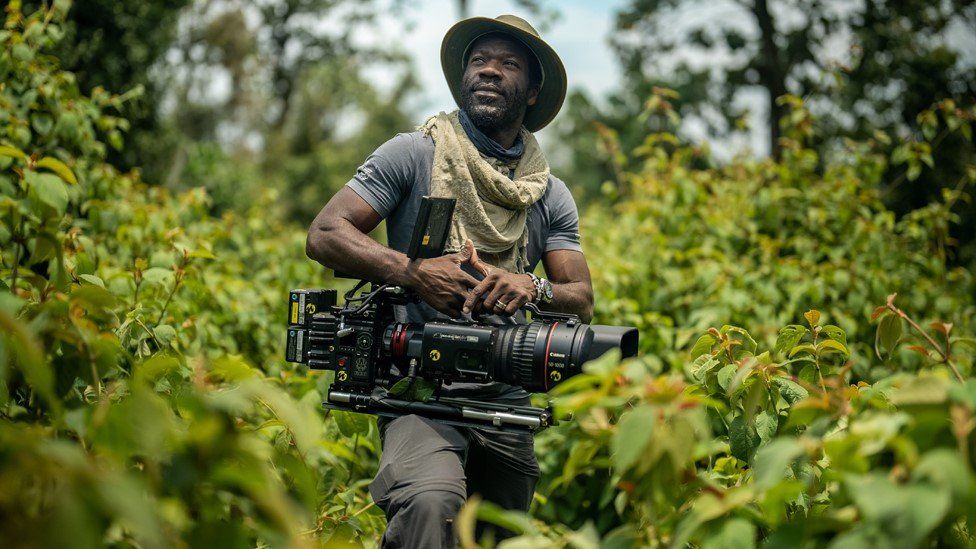-

-
-
Loading

Loading

In the dense forests of the Democratic Republic of Congo, a wildlife cameraman named Vianet Djenguet was invited to film the exposure of a gorilla family to humans. During the filming process, Djenguet got too close to the group's alpha male, Mpungwe, who charged at him with a shriek. Despite being terrified, Djenguet understood that Mpungwe was testing him rather than trying to hurt him. The charge was a way for Mpungwe to protect his family and establish his dominance. Djenguet managed to stand his ground and the gorilla eventually backed off. However, Mpungwe reached out and grabbed Djenguet's foot, showcasing his immense power. After the charge, Mpungwe slid backwards down the terrain and disappeared into the foliage. Djenguet had been invited by conservationists in DR Congo's Kahuzi-Biega National Park to document their efforts to habituate Mpungwe and his family to the presence of humans. Habituation is a process that can take several years and involves tracking and following the gorillas through the vast forest. The success of habituation relies on the willingness of the alpha male to accept humans, which in turn influences the acceptance of the rest of the family. Mpungwe and his family are among the last remaining eastern lowland gorillas in DR Congo, and the goal of habituation is to save them from extinction. If successful, tourists will be able to visit the family, generating income to protect the gorillas and their habitat. This is the second attempt at habituating Mpungwe. He was raised in a family of habituated gorillas as an infant but was orphaned during a civil war. Mpungwe then roamed the forest alone until he formed his current family. Now, at 35 years old, Mpungwe is fiercely protective of his group. During the filming process, Djenguet trekked through the dense forest each day, carrying an eight-stone camera and tripod. To earn the trust of the gorillas, Djenguet had to mimic their gestures and mannerisms, observing how they used their hands and beating his chest like the younger members of the group. Djenguet emphasizes the close connection between humans and gorillas, as they share about 98% of their DNA. He also highlights the similarities in caregiving between female gorillas and human mothers. The gorillas in Kahuzi-Biega National Park have faced numerous threats, including wars, deforestation, and poaching. The wars caused a major decline in the gorilla population, with many being killed and eaten for bushmeat. Poacher traps are still a deadly threat to the gorillas, with some individuals losing their limbs. The park's human neighbors play a crucial role in protecting the gorillas and their habitat. When local communities have income from ecotourism, they are more likely to prevent harm to the gorillas. Despite the challenges, the conservation efforts continue to save the eastern lowland gorillas. Djenguet felt a strong connection with Mpungwe and his family during his filming experience, feeling as though they had almost adopted him. On his last day, Mpungwe bid farewell to Djenguet by rising up and beating his chest. Djenguet believes that if he were to return, Mpungwe would remember him. The documentary film "Silverback" featuring Djenguet's experiences will be broadcast on BBC Two, offering viewers a glimpse into the world of these remarkable creatures and the conservation efforts to protect them.